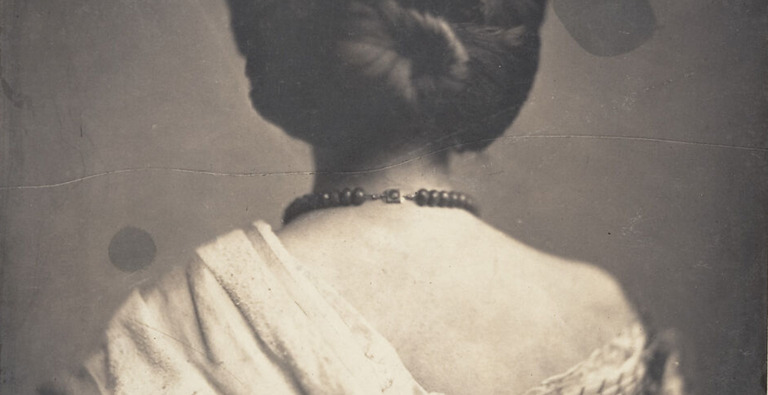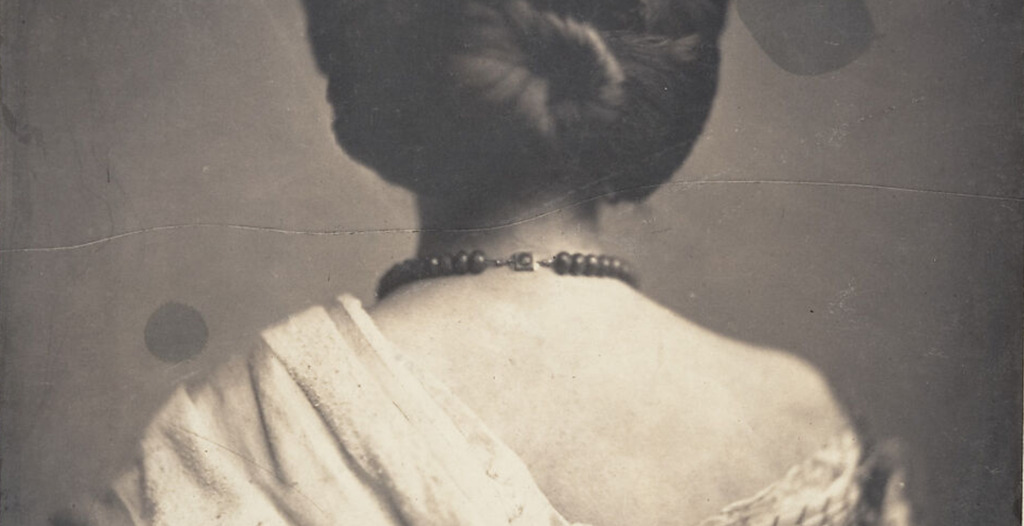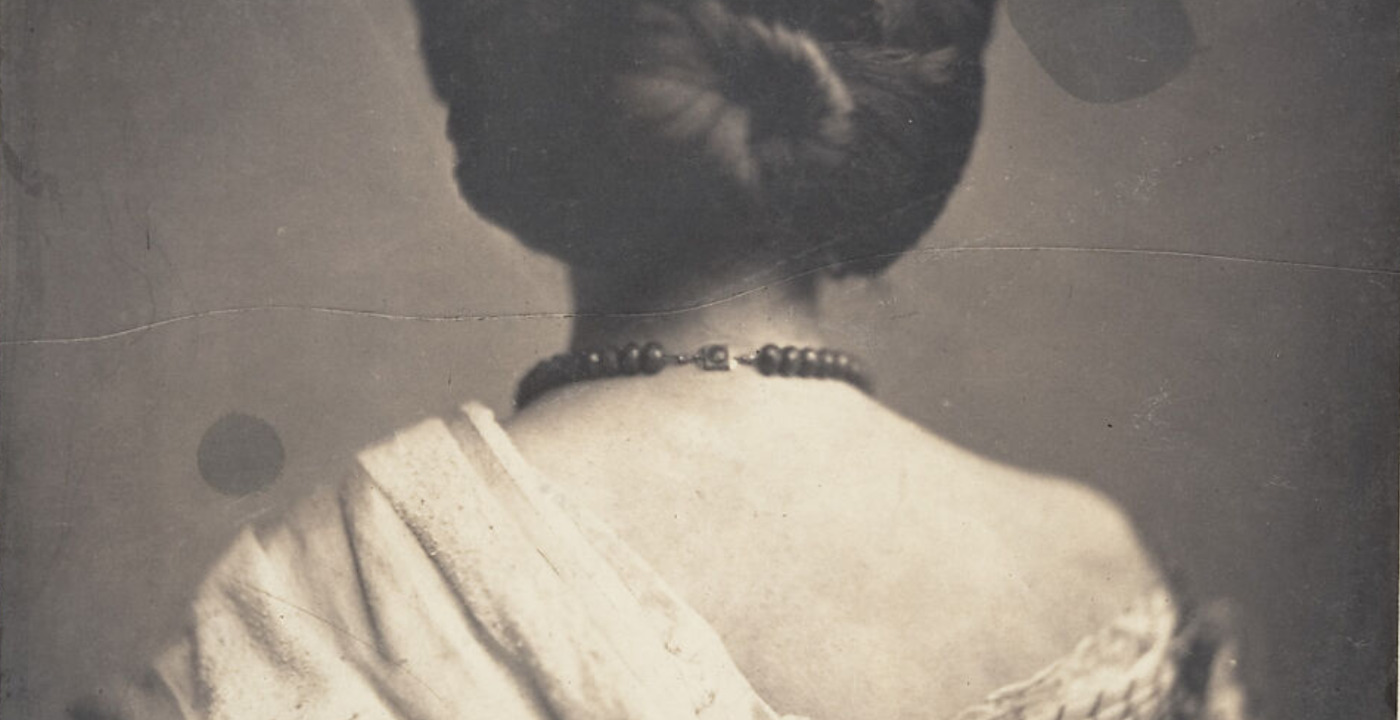Frances Power Cobbe (1822–1904) was one of the most influential women intellectuals of Victorian Britain. She published nearly two hundred journal articles, twenty books, and seven years worth of editorials for a major London newspaper. She campaigned tirelessly for women’s rights and animal welfare. Her writings and leadership of the anti-vivisection movement made Cobbe very well known. Her friends and correspondents included John Stuart Mill, Charles Darwin, Millicent Fawcett, and Josephine Butler.
Born near Dublin into a wealthy Protestant family, Cobbe’s education left her dissatisfied. She was taught at home by governesses and endured an unhappy year at a finishing school in Brighton, which she dismissed as attempting to make her an “Ornament of Society.” Instead, Cobbe set out to educate herself and become a serious thinker. She designed her own rigorous study plan, using her family’s library and subscribing to other lending libraries, and teaching herself subjects from Greek and geometry to astronomy and ancient philosophy.
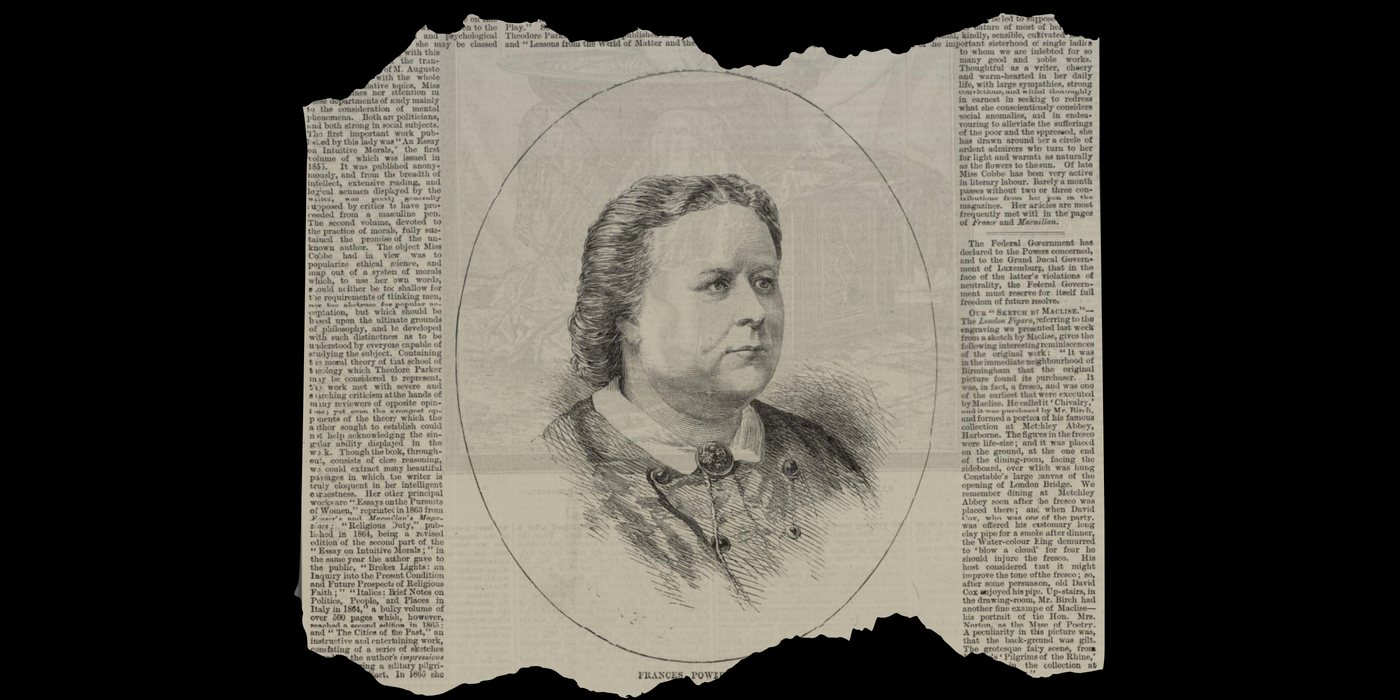
Though raised in the evangelical tradition, Cobbe began questioning her faith at the age of twenty. In her autobiography, she recalled grappling with these “tremendous questions” during “solitary walks in the woods and by the seashore,” and in her bedroom at night. These inner struggles left her despondent and self-reproachful.
Her spiritual crisis came to a resolution when she discovered the works of American theologian and abolitionist Theodore Parker, whose vision of a loving and forgiving God helped her to regain her faith. However, her severe father objected to her new humane and optimistic form of Christianity. He expelled her from the family home, only to recall her several months later to become his housekeeper.
Amidst her domestic duties, Cobbe persevered with her intellectual work. Another transformative moment came when she encountered Immanuel Kant’s philosophy. “God said–let there be Light! and there was–the Kantian Philosophy,” she remembered. At the time, she was composing a long “Essay on True Religion,” which she reworked in view of Kant’s ideas, while keeping her papers out of sight of her disapproving father.
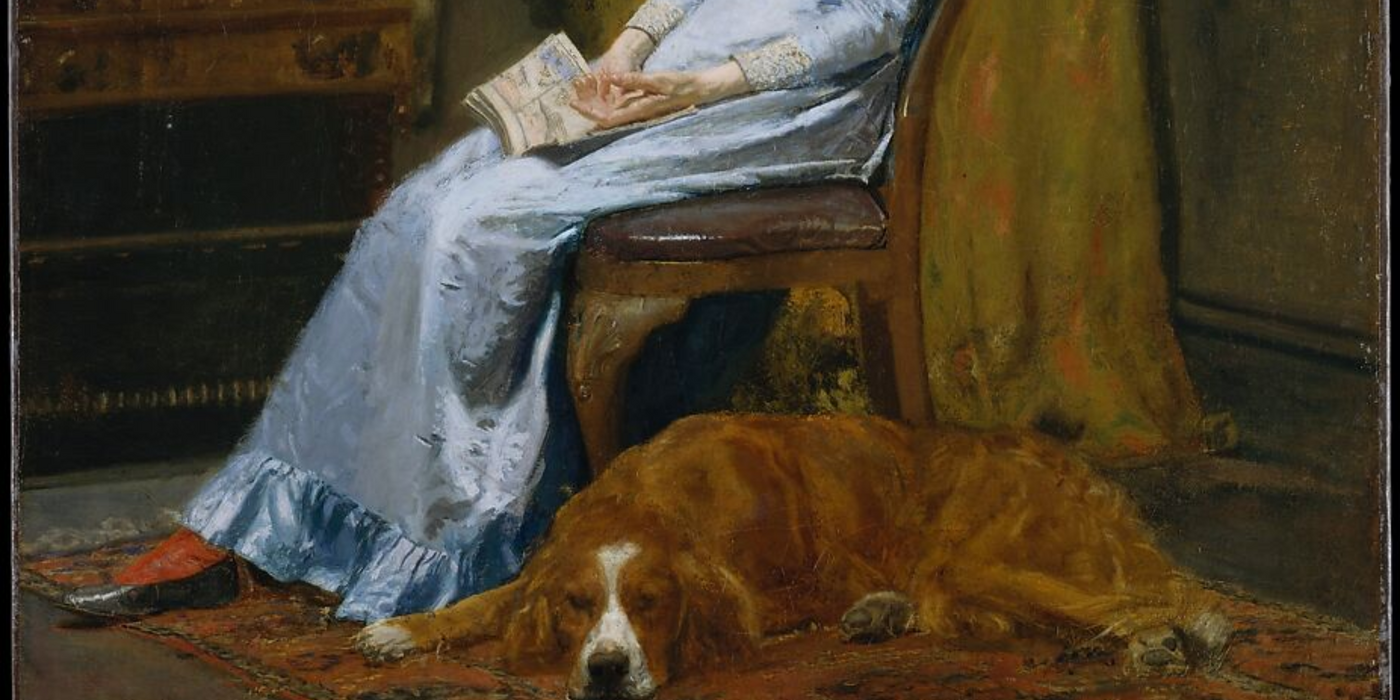
Wanting to bring her work to public attention, Cobbe approached Charles Longman, a leading publisher. At first he was sceptical that a young Irish woman should wish to publish a philosophical treatise, but Cobbe persuaded him. Her Essay on Intuitive Morals (1855) was published anonymously to avoid further conflict with her father. It received favorable reviews.
Cobbe’s father died in 1857 and left her a small annuity, which she used to travel. She toured the Near East and parts of Europe unaccompanied, bolstering her sense of independence. She then briefly worked with Mary Carpenter at her Ragged School for destitute girls, which convinced Cobbe that her true vocation lay in writing, not practical social work. She began to author articles on social reform, advocating a shift from private charity to state welfare provision.
In the early 1860s, Cobbe met the Welsh sculptor Mary Lloyd, who became her life-long partner. By the mid-1860s, Cobbe was earning enough from her writing to buy a house in Chelsea, where she and Lloyd set up home. Their relationship was publicly accepted; they attended dinner parties and social events as a couple and hosted gatherings themselves.
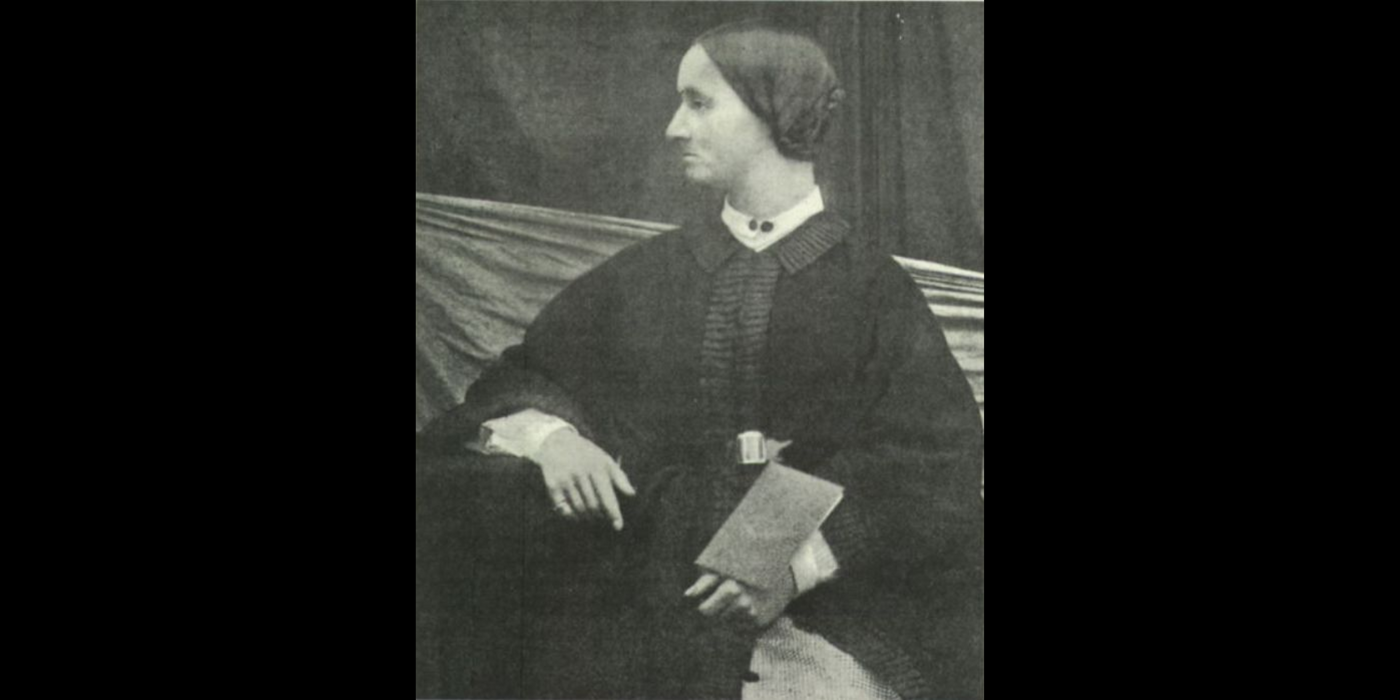
With a stable personal life in place, Cobbe entered her most productive period. She wrote extensively on philosophy, theology, moral theory, and practical ethics. Her work covered topics from animal rights and the unconscious mind to the death of God and the progress of history. She was a fierce critic of evolutionary ethics, arguing that Darwinism justified sacrificing the weak and infirm to benefit the health and strength of the social group. To Cobbe, this ethics–or rather anti-ethics–was put into practice in vivisection, which sacrificed animals to further the health and strength of human beings.
As Cobbe saw it, Darwinist “ethics” held that:
Nature is extremely cruel, but we cannot do better than follow Nature; and the law of the “Survival of the Fittest”, applied to human agency, implies the absolute right of the Strong (i.e., those who can prove themselves “Fittest”) to sacrifice the Weak and Unfit.
Cobbe became convinced that vivisection was not a marginal issue but a great danger, a barometer of the wrong direction society was taking under the influence of scientists. With the expansion of science and technology, humanity was pursuing ever greater power over the natural world and other animal species. Darwinism disguised this pursuit of naked self-interest as benevolent virtue.
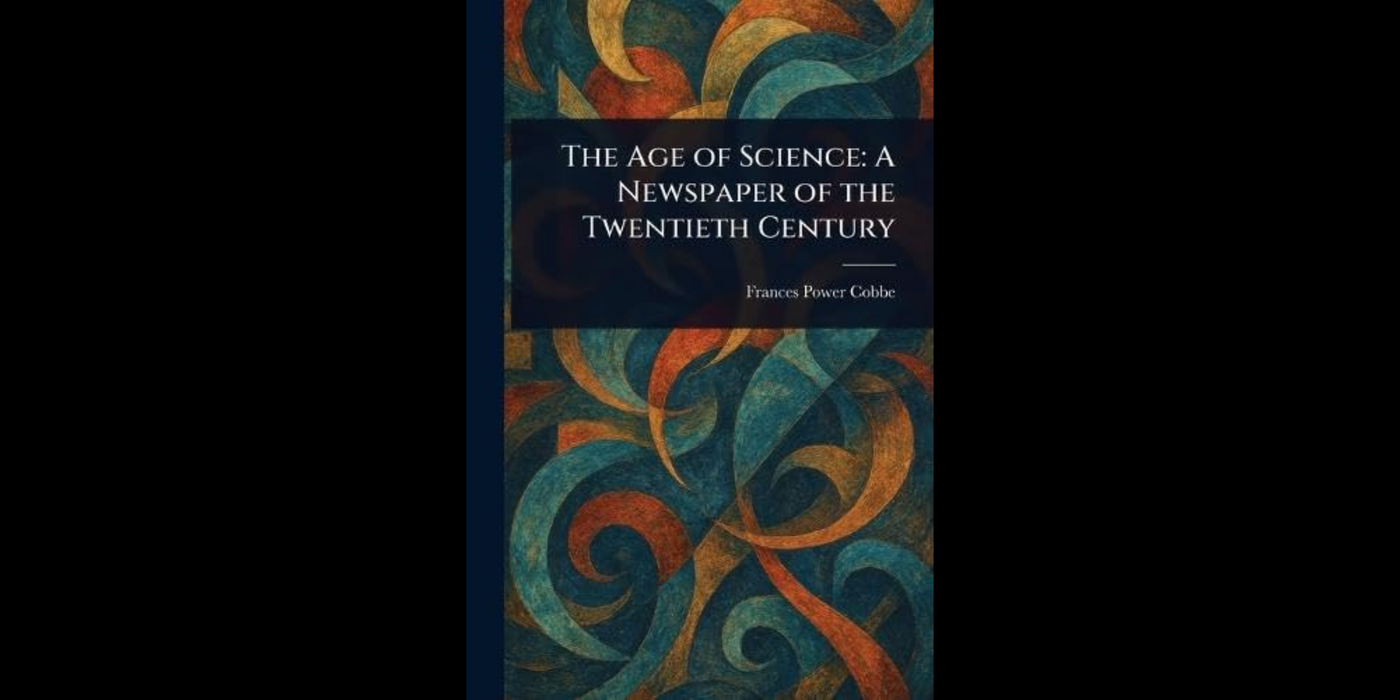
A fascinating expression of these fears was Cobbe’s dystopia, The Age of Science, published in 1877 under the pen-name “Merlin Nostradamus.” It presented an imaginary newspaper from 1977. In the future Cobbe envisaged, society was completely ruled by scientific men who decided on policy at international congresses, confining women at home to protect their allegedly fragile health. Scientific knowledge had grown immeasurably, but knowledge of the arts and humanities had so decayed that Milton was thought to have authored the Book of Genesis, and Romeo and Juliet to have founded ancient Rome. Sanitary certificates were required for participation in every area of life, and gatherings of more than six people were only permitted in a doctor’s presence. Photography had replaced art, chimpanzees had been taught to communicate with sign-language, and homeopaths were condemned to death for heresy. The scenario was by turns far-fetched, hilarious, and incredibly prescient.
Despite her achievements and insights, Cobbe was forgotten in the twentieth century. Her once-prominent reputation did not stop her being erased from history, a fate shared by so many intellectual women. A closer look at the Victorian era reveals Cobbe’s widespread influence. It is time to restore her to her rightful place in history.
Alison Stone is Professor of Philosophy at Lancaster University. Her most recent books are Women Philosophers in Nineteenth-Century Britain (Oxford University Press, 2023), Nineteenth-Century Women Philosophers in Britain and America (co-ed with Charlotte Alderwick, Routledge, 2024), and Women on Philosophy of Art: Britain 1770-1900 (Oxford University Press, 2024). With Lydia Moland, she is co-editing the forthcoming Oxford Handbook of American and British Women Philosophers in the Nineteenth Century. See https://www.lancaster.ac.uk/ppr/people/alison-stone
